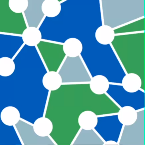Difference between revisions of "Known Issues"
(→No annotations loaded when data downloaded from caArray) |
|||
| Line 7: | Line 7: | ||
=== No annotations loaded when data downloaded from caArray=== | === No annotations loaded when data downloaded from caArray=== | ||
| − | When data is downloaded from caArray directly into geWorkbench (via the "remote file" option) the user is not prompted to associate an annotation file. This feature will | + | When data is downloaded from caArray directly into geWorkbench (via the "remote file" option) the user is not prompted to associate an annotation file. This feature will be added in a future release. |
===Connectivity with caArray 2.1.0=== | ===Connectivity with caArray 2.1.0=== | ||
Revision as of 15:28, 5 September 2008
Contents
geWorkbench 1.5.0
The current release of geWorkbench is 1.5.0, dated July 3rd, 2008.
Issues in previous releases can be reviewed by examining the release notes, which are available at http://gforge.nci.nih.gov/frs/?group_id=78 by clicking on the release name.
No annotations loaded when data downloaded from caArray
When data is downloaded from caArray directly into geWorkbench (via the "remote file" option) the user is not prompted to associate an annotation file. This feature will be added in a future release.
Connectivity with caArray 2.1.0
geWorkbench 1.5 is configured to connect with NCI's caArray database release 2.0.2. As of August 12th, 2008, the production caArray instance at NCI was upgraded to Release 2.1.0. Due to changes in the caArray API, geWorkbench 1.5 cannot connect with version 2.1.0. The development version of geWorkbench, available from the GForge CVS site, has been updated to connect to caArray 2.1.
To download the nightly CVS bundle, see the SCM tab at http://gforge.nci.nih.gov/scm/?group_id=78, or see the entry on using CVS directly in the FAQ section of this Wiki.
(Note - the problems described below are currently handled by distributing two Linux versions: V1 is the original, and V2 has been patched as described below.)
Some examples of errors seen are:
/usr/lib/jvm/jre-1.5.0-sun/bin/java: error while loading shared libraries: libc.so.6: cannot open shared object file: No such file or directory /usr/lib/jvm/jre-1.5.0-sun/bin/java: error while loading shared libraries: libpthread.so.0: cannot open shared object file: No such file or directory
This is a known problem with the version of InstallAnywhere used to create the distribution packages for geWorkbench. The problem will be fixed in coming geWorkbench distributions. However, in general, the installer file can be patched as follows:
Run a command like the following to comment out the line(s) giving problems, where install.bin represents the install file (which will have a different name in the actual release):
mv install.bin install.bak cat install.bak | sed "s/export LD_ASSUME_KERNEL/#xport LD_ASSUME_KERNEL/" > install.bin sh install.bin
and then run
sh ./install.bin
After the installation, you will also need to patch the file UILauncer in the installation directory. In the case of geWorkbench1.0.6, this directory is called " geWorkbench1.0.6"
mv UILauncher UILauncher.bak cat UILauncher.bak | sed "s/export LD_ASSUME_KERNEL/#xport LD_ASSUME_KERNEL/" > UILauncher sh UILauncher
genSpace component
The genSpace component, which (optionally) reports usage statistics to a central server, was not configured correctly in the file all.xml and is not working in release 1.5.0.
Clustering - Limitations/Requirements
In version 1.0.4+, the Hierachical Clustering tutorial requires a machine with 1 GB of memory, and the Java heap size must be set to at least 450 MB. This can be done in the file UILauncher.lax which is found in the application root directory of the InstallAnywhere packaged versions of geWorkbench. Specifically, the following line in that file should be set as follows:
lax.nl.java.option.java.heap.size.max=450678989
Version 1.03 of geWorkbench and earlier used an algorithm for Fast Hierarchical Clustering which did not implement the commonly understood versions of Average Linkage and Total Linkage. We do not recommend further use of that version.
